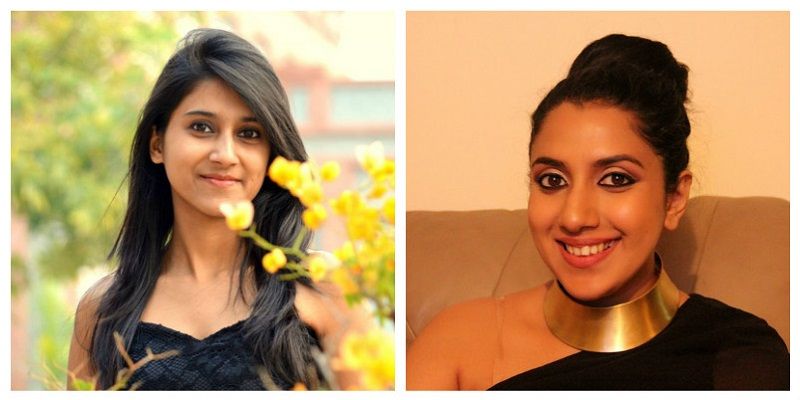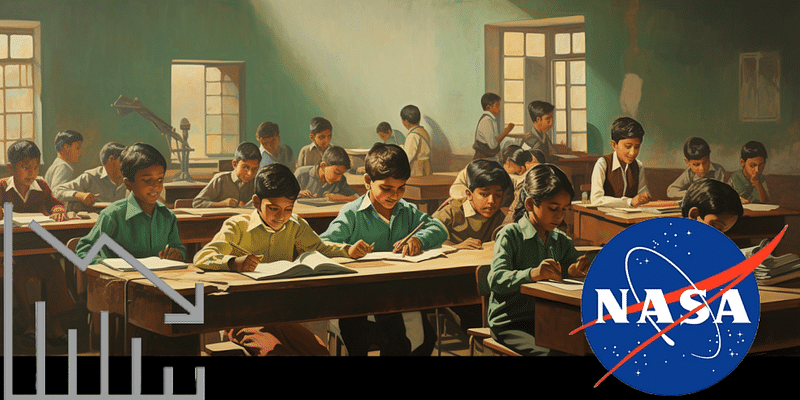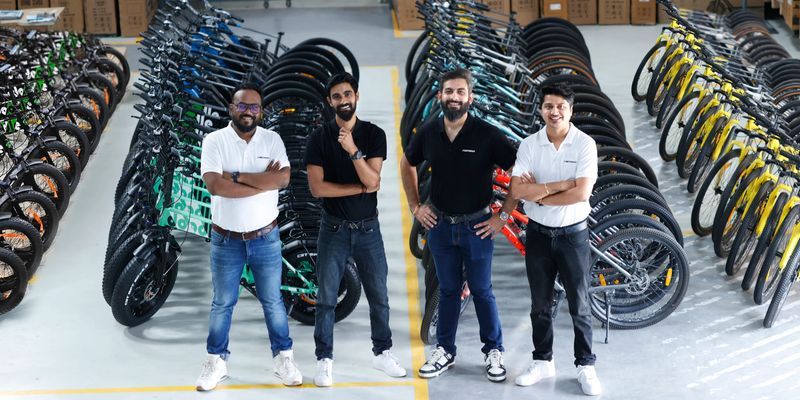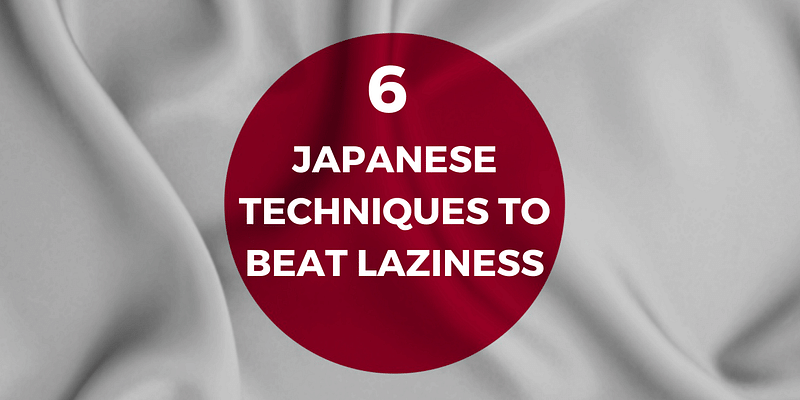These 2 young, enterprising and creative women entrepreneurs are focusing on a global market
In a market saturated with multiple players and thousands of brands, it becomes very difficult for new entrepreneurs to make inroads and gain that initial momentum. That explains why these two feisty young women decided to look beyond our shores to gain appreciation for their traditional yet trendy products that give the best of Indian textile and jewellery modern twists.

Pallavi Mohadikar, founder and creative brain behind Indofash
27-year-old Pallavi Mohadikar hails from a weaver family in a small village near Nagpur in Maharashtra. As a child, watching weavers weave their magic, transforming yarns of silk into Tussar (Kosa) sarees, was a charming way of passing time for Pallavi. Her grandfather would explain to her the intricacies as well as the challenges behind the art. While pursuing her MBA at IIM Lucknow in 2014, she renewed her connection with traditional handloom and spent time with weavers and craftsmen in rural UP and Maharashtra.
Pallavi says, “I learned that they end up making less than 10–15 percent of what their work is being sold for in tier-1 cities or internationally, in showrooms or exhibitions. Most of these artisans are stuck with middlemen and agents who take advantage of their lack of awareness. I realised that a direct platform where they can showcase their unique work to a global audience was something I could provide.”
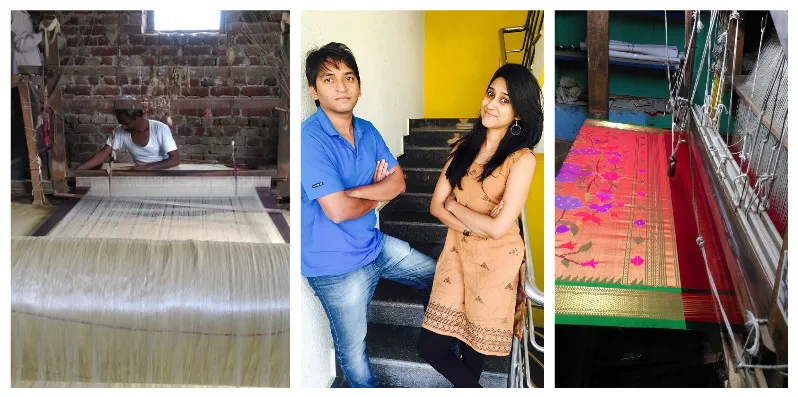
After getting her degree, Pallavi had a small stint at Goldman Sachs in Bengaluru, primarily to placate her parents. When she quit to start Indofash in April 2015, her mother was upset enough to ask her, “Saree bechni thi toh IIM jaane ki kya zaroorat thi?” (If you wanted to sell sarees, what was the need to go to IIM?) With time, her parents were won over when they realised Pallavi loved her work and was also able to bring about change in the life of the weavers associated with Indofash.
Along with CTO and co-founder Rahul Gayakwad, Pallavi’s Indofash is a team of eight today. In the last few months, the team has worked closely with weavers and craftsmen from rural Karnataka, Maharashtra, Jharkhand and Rajasthan by organising photo shoots of their products and showcasing them on the platform. Bengaluru-based Indofash also has a range of ethnic jewellery and curated home décor items from well-known brands.
According to Pallavi,
We now have more than 10,000 products on the platform from 150 weavers, craftsmen and through NGOs that dabble with ethnic art and craft from all across India. We have served over 600 orders (out of which 50 percent are international orders) with revenues of Rs 30 lakh in just four months. We are profitable on every order we serve.
Indofash received their first round of funding from well-known angel Shekhar Sahu. The team plans to use the funds primarily for international market expansion. Pallavi says, “It started off very organically with my friends who live abroad, mostly in the USA, purchasing Indofash products since the ethnic apparel available there is far more expensive and not authentic handloom. Demand started increasing through word-of-mouth feedback.” Right now, they are focusing primarily on the international market — specifically the USA, UK, Canada, Australia and South Africa — which have been identified as high-potential, high-growth markets. Indofash has delivered orders in around 11 countries so far.
Social media, especially Facebook, has worked wonders for them in terms of reaching the right audience. Even in future, their marketing strategy will focus on creating a footprint in niche segments using social media.
Divya Nambiar, founder and creative head at Unniyarcha
Divya Nambiar inherited her eye for design from her mother, an amateur but talented jewellery designer, and her business sense from her industrialist father. A finance graduate from Columbia University, Divya ventured into the field of jewellery due to her innate passion for design.
Launched in May 2015, the brand name Unniyarcha is inspired by the legendary warrior princess of 17th century Kerala. Divya says, “I wanted a name that would express both beauty and strength since that exemplifies the modern woman.” Divya started Unniyarcha in New Delhi, and when her husband had a location change to Bengaluru, the startup moved cities too. However, Divya has ensured that Unniyarcha’s collection is available in New Delhi, Chennai, Kolkata and Mumbai through tie-ups with designer jewellery stores. The bulk of the brand’s orders come in online through the website.
Unniyarcha offers a variety of 18-carat gold and silver-plated fusion jewellery, with every single piece under the label showcasing a blend of conventional and contemporary design. Divya is actively involved in the design process and ensures that brainstorming sessions with her team of five designers end only when they have understood exactly what she wants and how best the design can be created.
Divya says, “I was very fond of drawing and sketching during childhood and would often doodle designs in my notebook. So, for me, my startup is a childhood dream come true.”
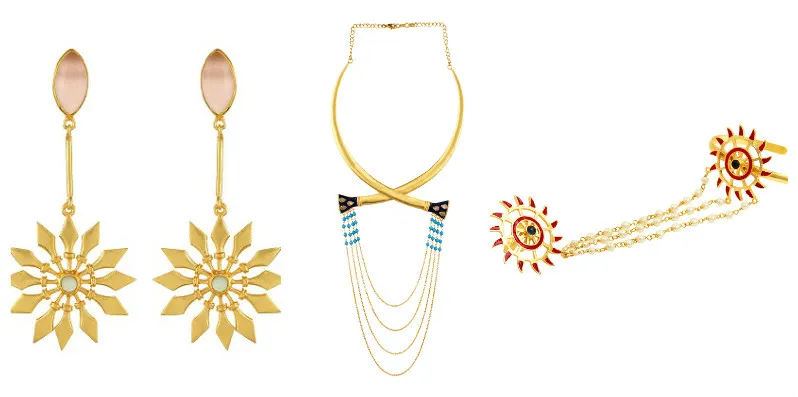
After starting her career with a stint at Deloitte Consultants in New York, Divya moved back to India to work with her father. The three years spent working with him was an invaluable — experience and she feels she got to hone her entrepreneurial and management skills during the time.
While Divya was doing well on the professional front, she often felt that her work lacked a creative element. One morning, while walking through her father’s manufacturing facility, the sunlight falling on a pile of scrap metal drew her attention. She was fascinated with the way rainbow colours were being reflected off the metal and could immediately visualise a variety of designs using different colour combinations. That was a defining moment for Divya as she realised that creating unusual art pieces is what would make her the happiest.
Moreover, during her stay abroad, she had observed the absence of renowned Indian brands despite Indian craftsmanship being superior. Divya felt that Indian jewellery brands had great scope globally and therefore decided to start a jewellery label with the intent to focus on an international customer base. Divya polished her design talent pun intended — with a course at Parsons School of Design in New York.
The collections on the website are divided into two categories — ‘Limited Edition’ and ‘Express’. The Limited-Edition collections are designed exclusively by Divya and are inspired by themes from mythology and architecture. All designs are handmade and the stones are ethically sourced and selected. The Express collection consists of a wide range of jewellery pieces that are curated and handpicked globally by Divya and her team. This collection is more affordable and the designs can be worn on casual occasions.
Her first Limited Edition collection was launched in February 2016 and was a Mahabharata-inspired ‘Epic Collection’ consisting of classy but quirky pieces, each with a story to tell. The second Limited Edition collection, which will be launched next month, is the traditional ‘Samskaara’ collection which takes its inspiration from the beautiful temples and rich architectural beauty of South India.
Since Divya believes that social responsibility is a part of entrepreneurship, the brand has recently partnered with the Prajwala Foundation, which works towards the psychological and economic rehabilitation of rape survivors. A percentage of all online and offline sales of Unniyarcha is contributed to the Foundation.
Divya says,
Since my home state of Kerala has a huge expatriate population, I have had customers from among friends and family who live in Dubai and the USA. Through their word-of-mouth referrals on social media, orders from these geographies have been on the rise. I, therefore, plan to focus on the international market in the coming months.






